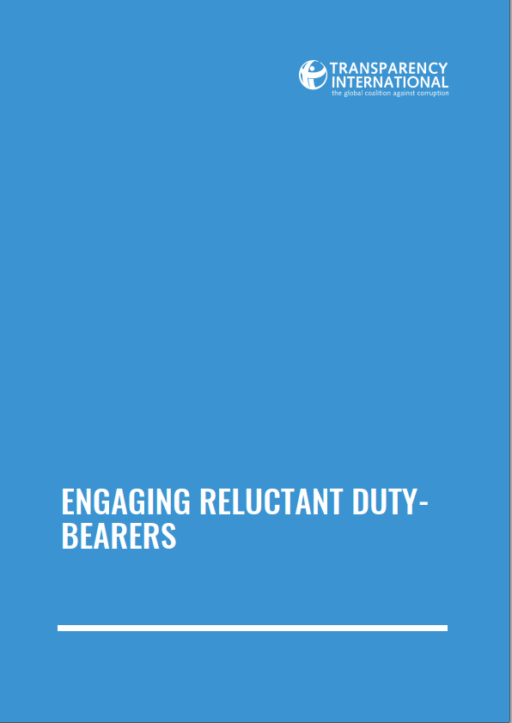Engaging Reluctant Duty Bearers: Considerations and Strategies for Civil Society Organisations
Description
Public officials are often reluctant to engage in governance reform processes for a range of distinct reasons. This problem is especially acute where such reforms are being proposed or championed by non-state actors such as civil society groups.
Certain duty-bearers may be averse to reform as they benefit from the status-quo; some may fear political alienation and blowback if they throw their weight behind a contested reform process; others still may be reluctant to engage with civil society as they operate in environments openly hostile to non-governmental organisations.
This brief concisely describes various types of challenges civil society groups may encounter when trying to engage public officials, sets out key considerations for civil society organisations to determine their engagement approach, and presents four core strategies that can be useful to win over duty-bearers to a reform agenda.
Contents
- The Challenge
- Key Considerations
- Defining The Intervention
- Understanding Reluctance
- Positioning A Strategy
- Strategies
- Evidence
- Entry-Points
- Coalitions
- Framing And Communication
Authors
Anoukh de Soysa
Reviewers
Besinati Phiri Mpepo, World Vision International
Hama Zeidan, AMAN Palestine
Prof. Jonathan Fox, Accountability Research Centre
Matthew Jenkins, Kate Hanlon, Jorum Duri and Caitlin Maslen, Transparency international
Date
31/01/2022
Tags
 Download PDF
Download PDF
